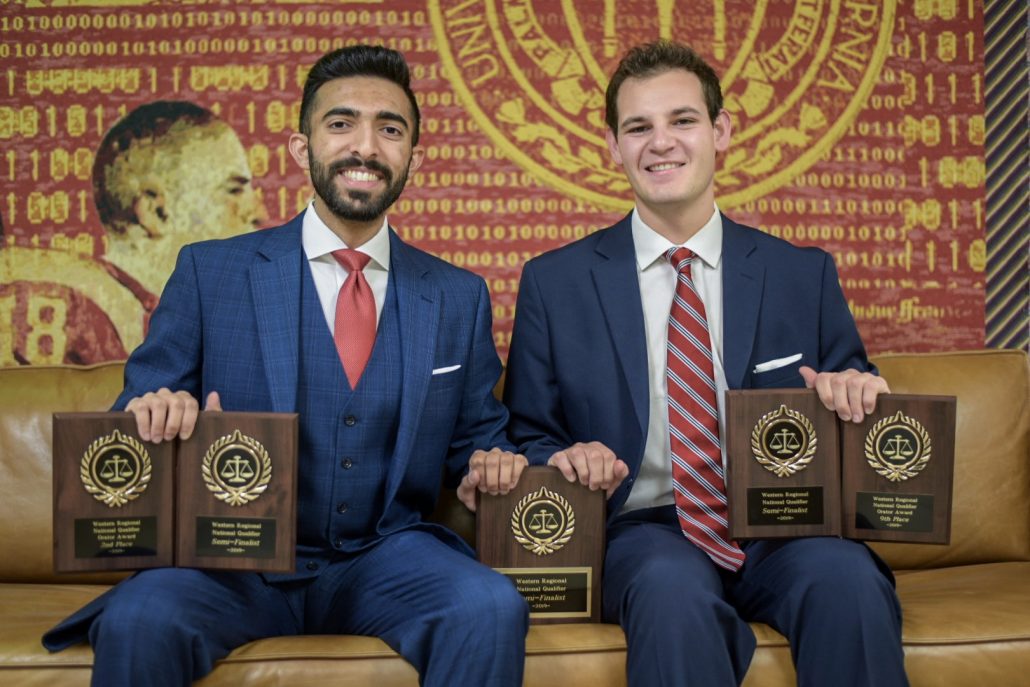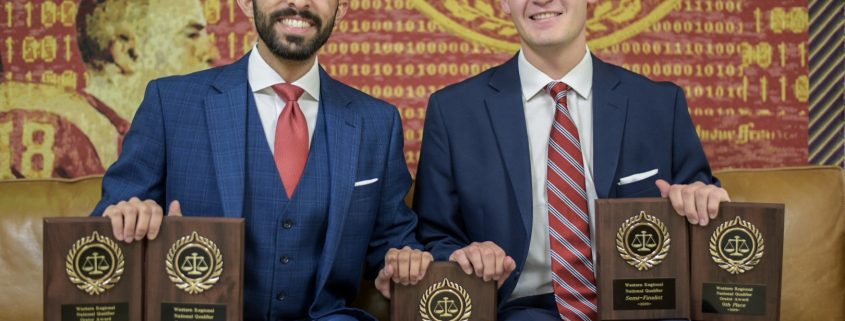Students restart Moot Court team after hiatus

(Andrea Diaz | Daily Trojan)
After a four- to five-year hiatus, four students revived the undergraduate moot court team, which simulates appellate court trials, after realizing their common interest in criminal law during this year’s case competition.
The team took home fifth and ninth place at the Western Regionals last weekend at California State University, Fresno. It also won individual awards for the second- and ninth-best orators out of 70 people.
Shauli Bar-On, a junior majoring in political science, and Harmon Gill, a junior majoring in communication, were a part of the team that placed fifth, which puts them in a position to qualify for nationals. Michael Jeung, a senior majoring in political science, and Robert Ota, a senior majoring in communication, took ninth place.
“To be able to culminate that into a moot court competition with these very real and relevant issues … and we’re making very real legal arguments with very legal thinking on our part. I think it was a really cool and fascinating experience,” Gill said.
The four students met three to four times a week in the evenings to prepare oral arguments and quizzed each other as judges. The team also received guidance from their faculty advisers associate professor of political science Arthur Auerbach, assistant professor of writing Antonio Elefano and student moot court competitors at the Gould School of Law, who posed as judges and asked hypothetical questions to simulate a competition trial.
Auerbach explained that the overall practice timeline included meeting with the team, analyzing different sides of issues and improving critical thinking skills.
“It’s really just practice over and over and over and going through the different case law, as well as the fact pattern and understanding the sort of legal cleavages that are set out in the cases,” Auerbach said.
Elefano said pre-law students should join moot court to develop skills that could be required in law school and future legal professions, including appellate argumentation.
“These are skills that are typically developed in law school, precisely because it’s very difficult,” Elefano said. “It requires not just a command of one’s case — it requires a sort of command over the area of law that you’re dealing with.”
The typical moot court team prepares for competition season as early as the previous spring semester, Gill explained. However, since USC’s undergraduate team was formed in Fall 2019, the team only had one month to prepare.
“I think the biggest challenge … was that we kind of just did this on our own,” Jeung said. “We saw that there was a niche in the body of undergraduate organizations that were available. And we saw that we wanted to fill that niche, we just did a leap of faith, and we just went after it ourselves.”
Jim Lee, Gould’s assistant director of undergraduate recruitment and outreach, said he hopes the new undergraduate team will better introduce pre-law students to the field.
“[We hope moot court students gain] the knowledge of law, what the legal profession itself,” he said. “Really just anything law-related since they can really … I’m not too familiar with moot court in general … We’re rooting for them as they compete but we also want to develop them as professionals and academically as well.”
The team is applying to be a registered student organization for Spring 2020 and hopes to recruit more members in coming semesters. It also plans to compete in at least two tournaments next semester in Long Beach and San Francisco.
“We’re really excited to be able to go to some of these tournaments with the new members that we’ll have in the spring because I think that’ll put us on the path to having a really really strong, grounded preparation for the fall for the next regionals,” Gill said.

